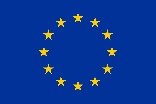
ONEforest Final Conference: Successes, Networking, and Next Steps
The final conference of ONEforest has been a complete success. Two days of conference and two poster sessions, involving 5 EU Forestry Networking initiatives and 5 EU funded projects, the sessions featured over 25 speakers, and more than 50 posters were presented.
The event took place in a hybrid format, both in-person and online. A total of 125 participants attended in person from 12 countries: Germany, Algeria, Austria, Belgium, Slovenia, Spain, Estonia, France, Italy, Morocco, Sweden, and Switzerland. Additionally, 16 universities, 15 companies, and 8 model forests were represented, and nearly 50 posters were displayed across two sessions. The success of INNOVAForONE was the atmosphere created among the participants, who expressed their satisfaction with having taken part in the event.
During the Day 1 of the ONEforest Final Conference, it was kicked off with an electrifying lineup of speakers including Pablo Sabín, CEO of Cesefor, Sandra Krommes from Rosenheim Technical University of Applied Sciences and Coordinator of the ONEforest project, Guillermo Fernández Centeno, advisor of the Forestry Policy Sub-Directorate from Ministerio para la Transición Ecológica y el Reto Demográfico, and José Angel Arranz, Managing Director of Natural Heritage and Forest Policy of Junta de Castilla y León.
As the Catalonian Case Study Region took center stage in Spain, ONEForest partners unveiled their groundbreaking results, leaving the audience on the edge of their seats. The audience showed keen interest in replicating and transferring our Multi-Criteria Decision Support System to other regions. Indeed, it's possible, but experts must first define the indicators specific to the selected region.
During the coffee breaks, a guided tour of poster presentations took place to present the main results from each work package but also some scientific research, as well as to introduce the participants EU Forestry Network and the EU projects.
Key Players Networks
The EU forestry networking session was led by key players like European Forest Institute, the ERIAFF Network, the Mediterranean Model Forest Network, the EFI Bioregions Facility, and the InnovaWood network & FAO SilvaMediterranea paving the way for #forestinnovation and stakeholder synergies. Tamas Szedlak from the Directorate-General for Agriculture and Rural Development of the European Commission shed light on the EU's financial opportunities in the forestry sector, setting the stage for an enlightening afternoon.
EU funded projects
How can we enhance the resilience of EU forests and their associated value chains? Who decides when and where innovation should take place? Is language the key barrier in forestry projects? And how do we ensure the sustainable use of wood and non-wood products through small-scale forest management? EU-funded projects such as RESONATE, EUFORE, FOREST4EU Project, and SMURF - The forest owners' project shed light on these issues through their work.
Panel Discussions on Innovation and EU Forestry Policy
Another activity that generated great interest among attendees was the panel discussions organized around the topics "Innovation in Silviculture: What is still needed?" and "EU Forest Policy: Key Messages for Improvement." The conclusions of both panels can be summarized in these four points:
1. The forestry sector urgently needs institutional, social, and technological innovation to address current and future challenges. This includes fostering public-private collaboration, enhancing workforce skills, and embracing digitization and AI to accelerate change.
2. Innovation efforts must reach millions of European forest owners and companies across diverse regional contexts. Enhanced knowledge systems, such as FORKIS (Improved Forest Knowledge and Innovation Systems), are essential, along with financial support and market improvements to integrate new ecosystem services and value chains.
3. Collaboration through projects and networks is crucial for innovation transfer among regions, landscapes, and value chains. Leveraging existing networks facilitates ongoing collaboration and accelerates the diffusion of innovation.
4. There is an urgent need to improve the coordination of forest policies, moving beyond conservation-focused approaches to support sector development and the bioeconomy. Increased investment in R&D, innovation transfer mechanisms, and support for the forest sector and value chains are imperative for sustainable economic development and environmental preservation.
Last Consortium Meeting and Workshops
On day 2, parallel sessions were organized by some participating projects and networks. This second day allowed the ONEforest consortium to update the current status of the project in its final stretch, as well as address the last remaining details and share the latest findings. As the project comes to an end at the end of May.
On the other hand, the Mediterranean Model Forest Network held a workshop with members and observers, the FOREST4EU project conducted a Prioritization Workshop with Spanish partners and stakeholders, and EUFORE + ERIAFF organized a joint workshop with stakeholders.
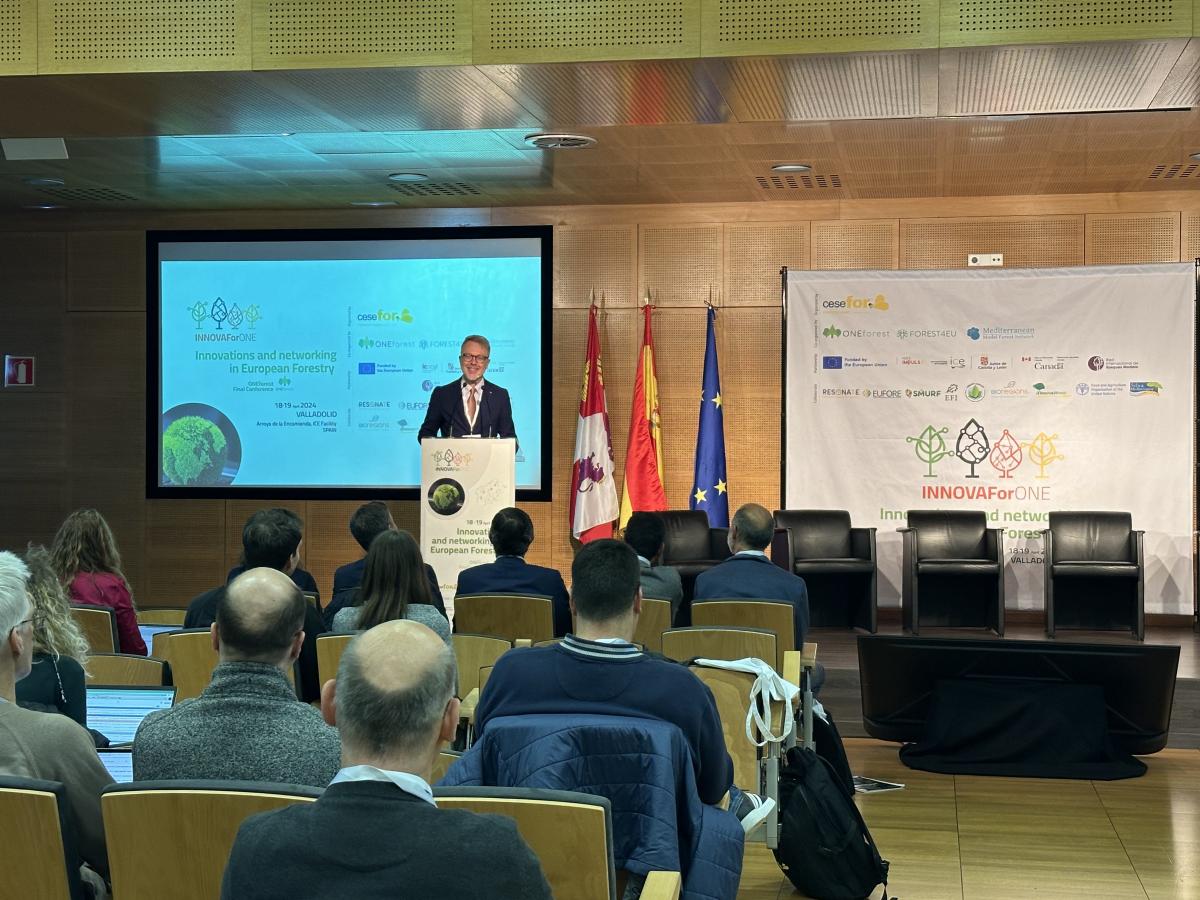
Moderator Riccardo Castellini (Cesefor) in the Welcome session.
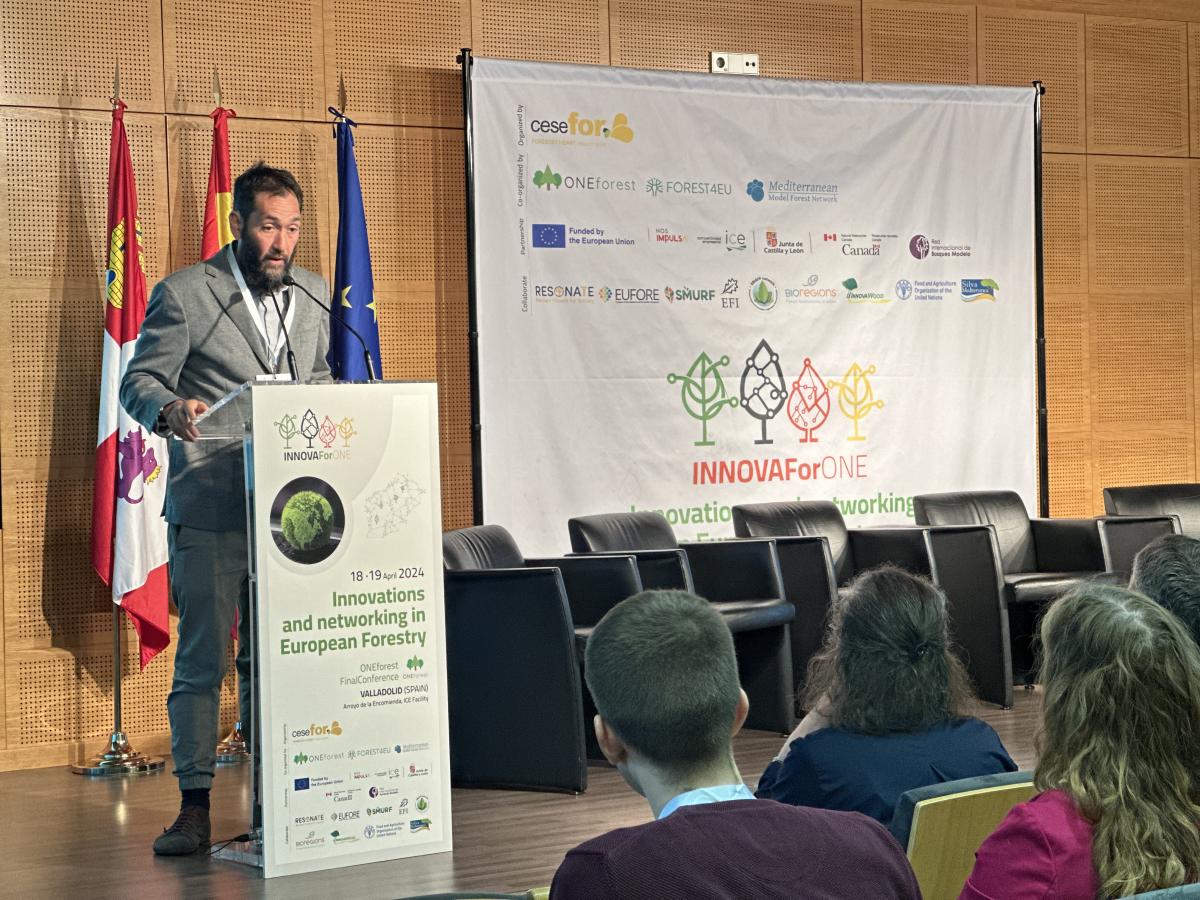
Pablo Sabín, CEO of Cesefor.
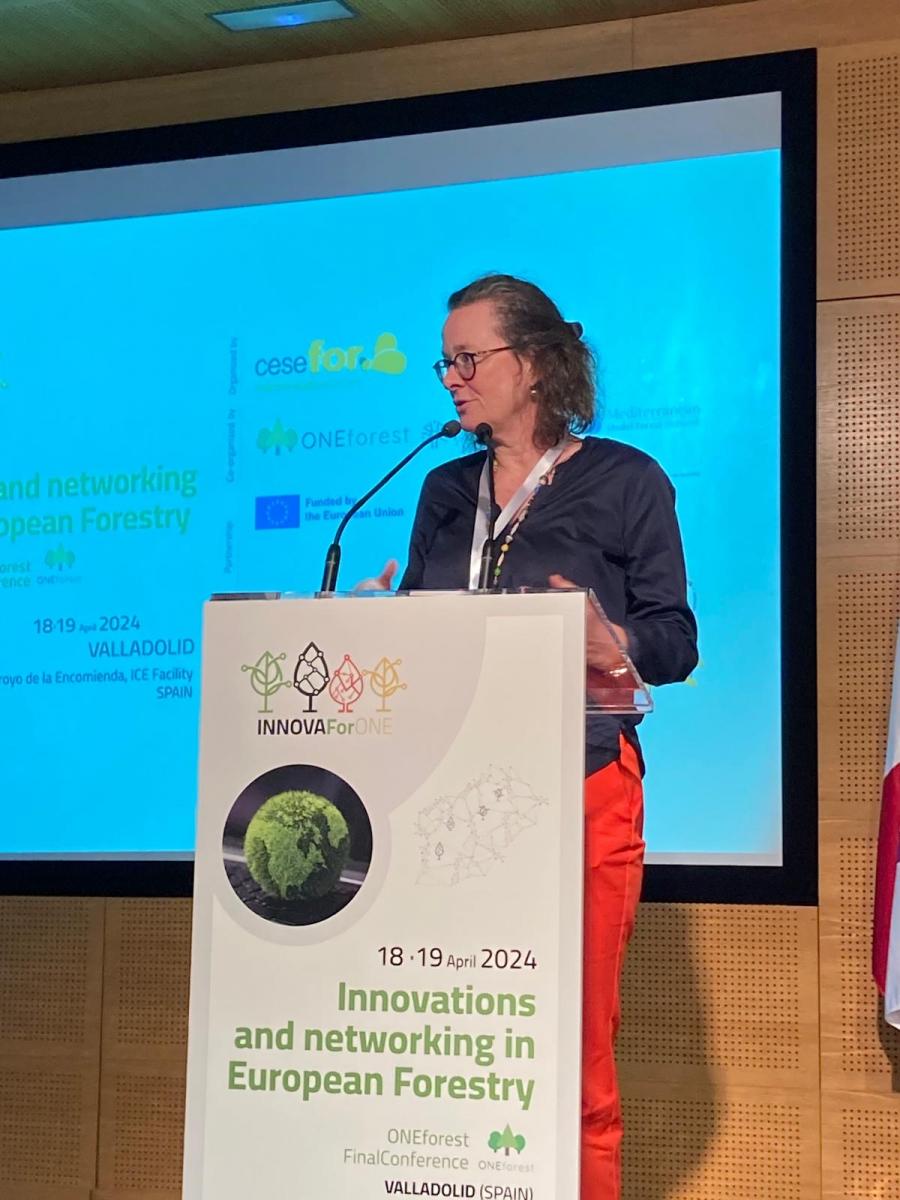
Sandra Krommes, University of Rosenheim, ONEForest Coordinator.
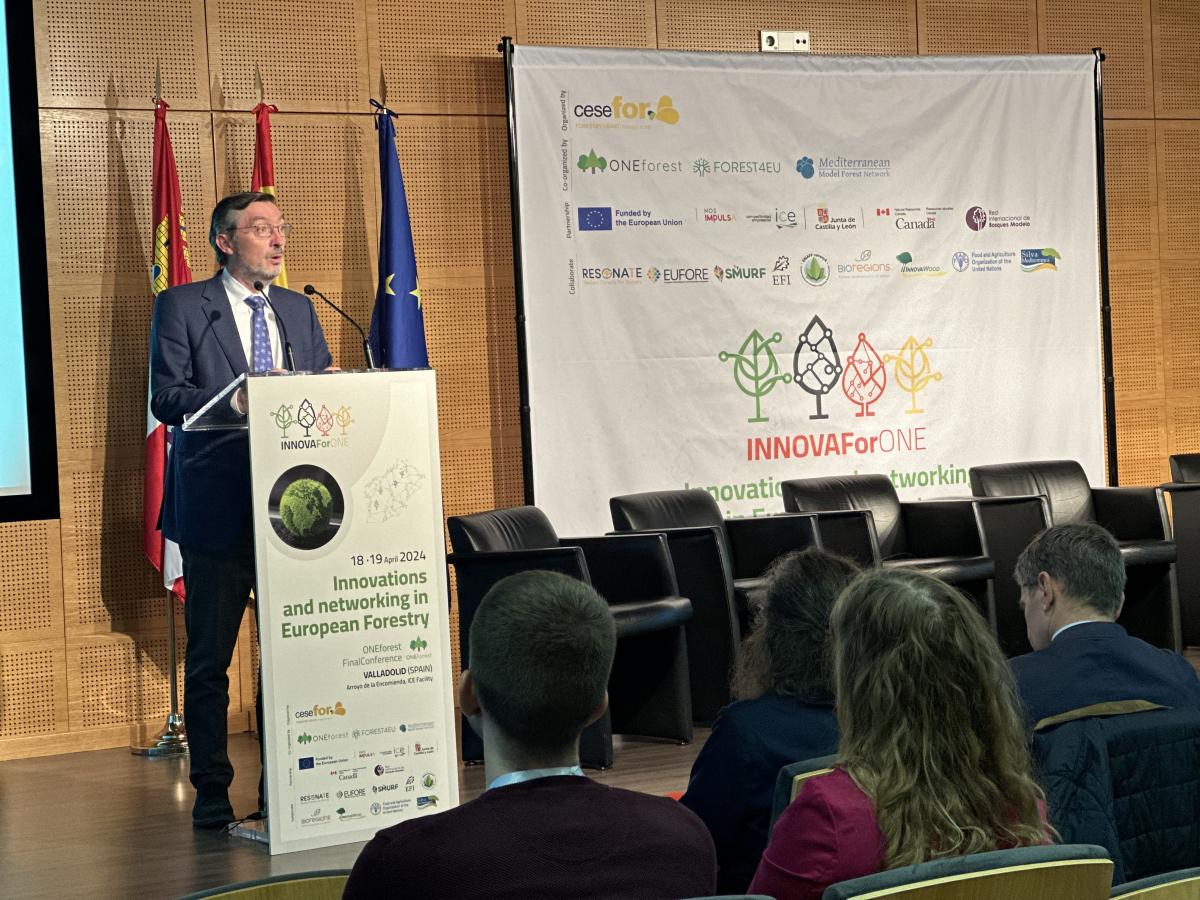
José Angel Arranz, Managing Director on Natural Heritage and Forest Policy of Junta de Castilla y León, the forest authority of Castilla y León (Spain).
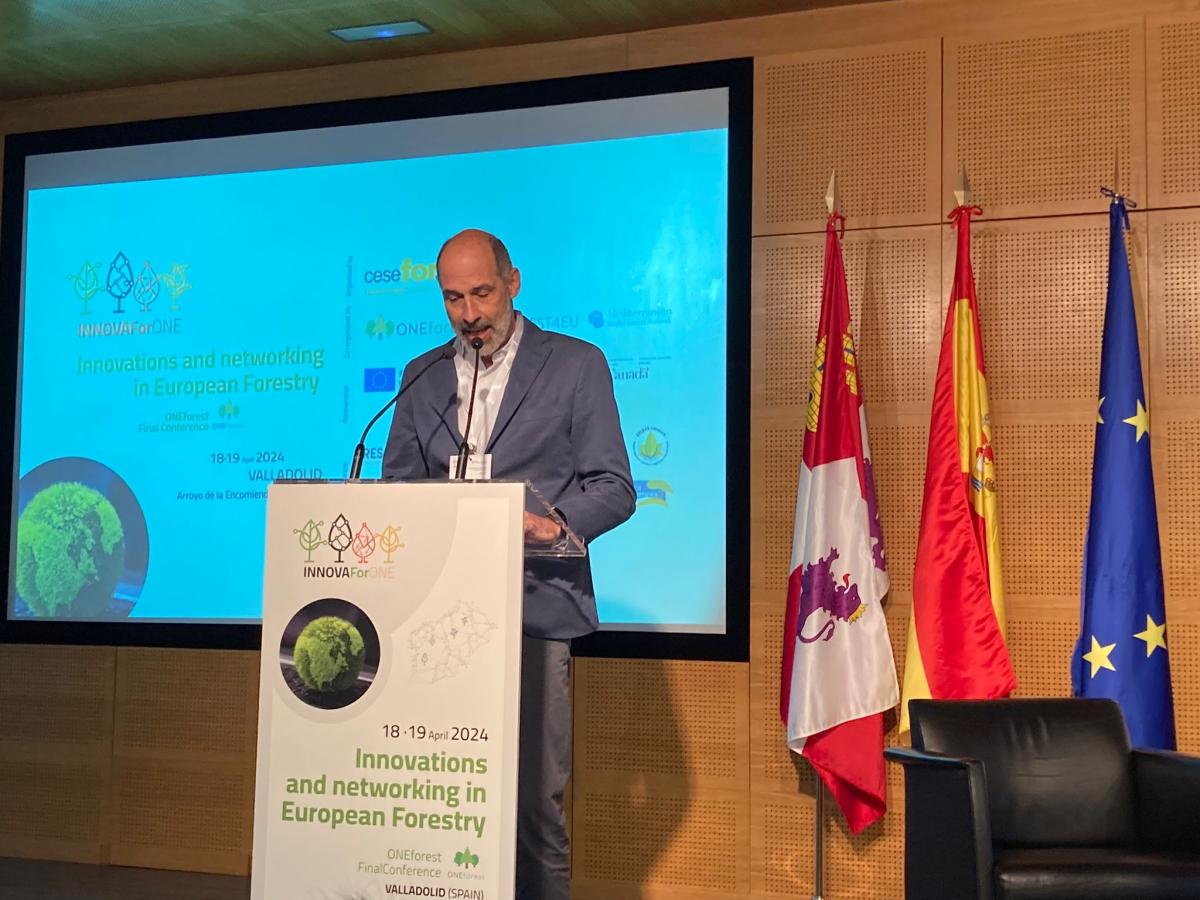
Guillermo Fernández Centeno, Advisor of the Forestry Policy Sub-Directorate of the Ministry for Ecological Transition and the Demographic Challenge.
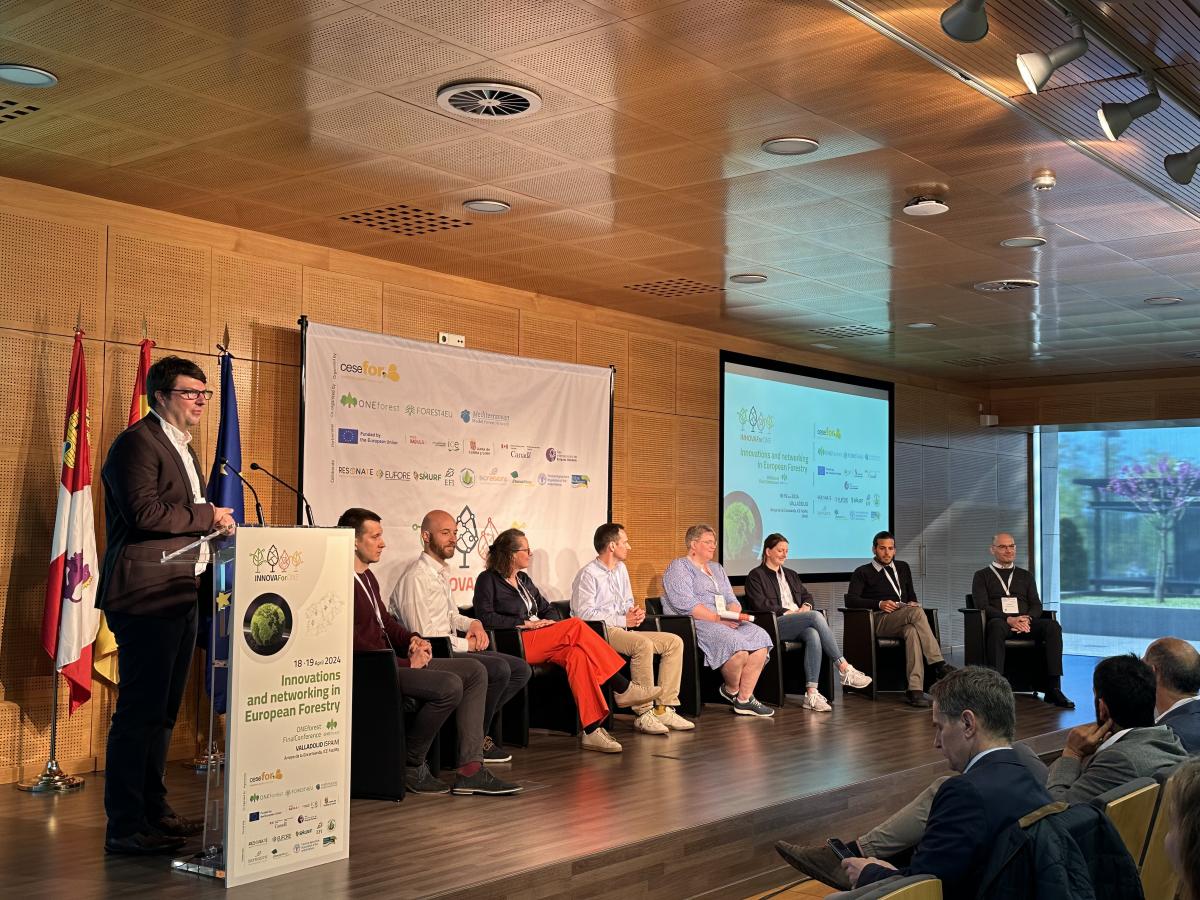
ONEforest Final Results session.
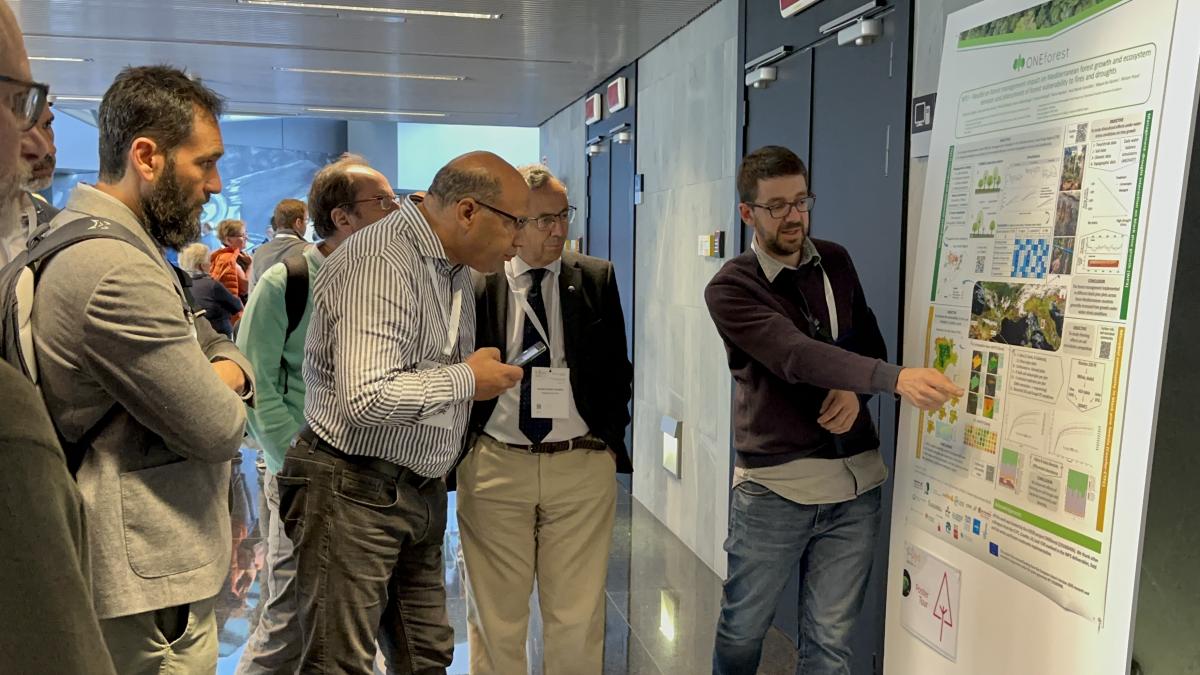
Poster session.
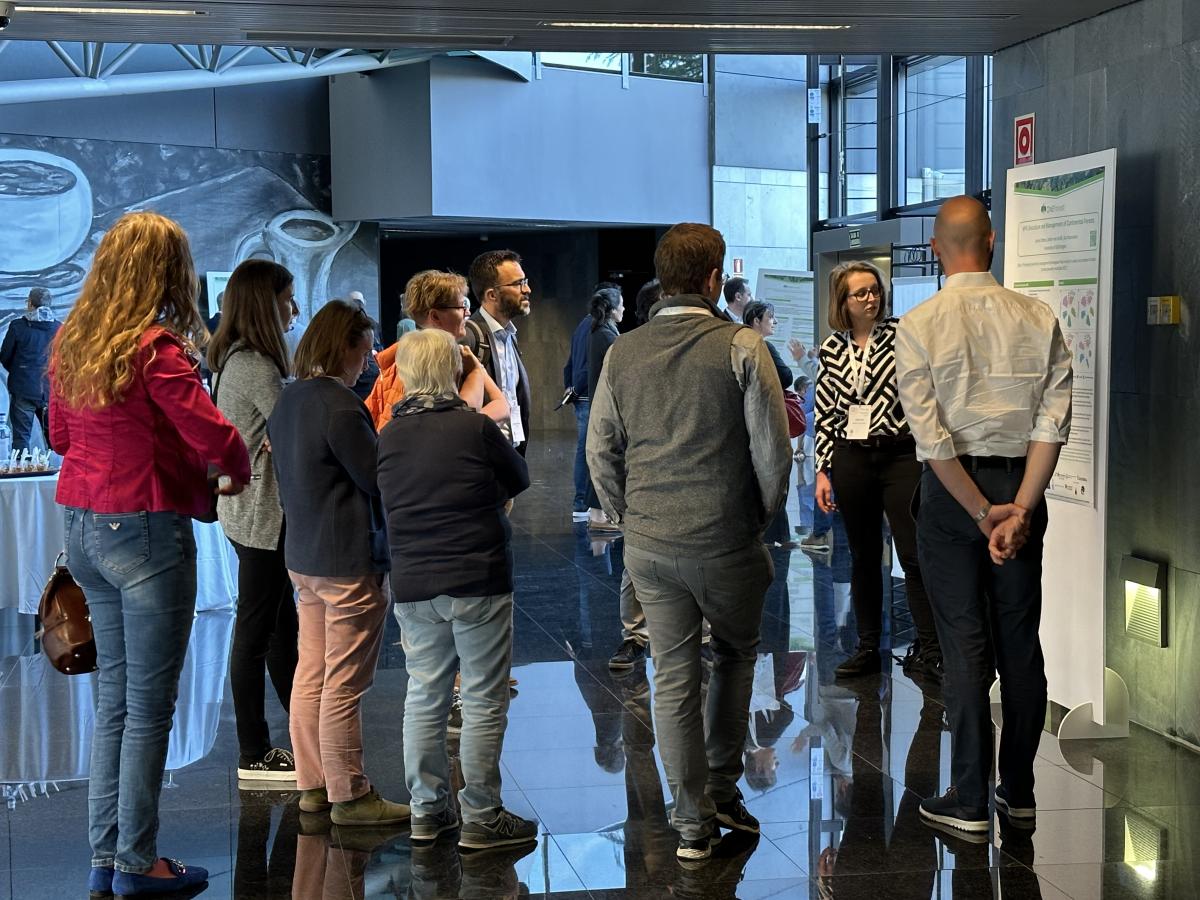
Poster session.

Round table and open debate The innovation in forestry: what we still need?

Round table and open debate The EU forestry policy: key messages for improvements.

